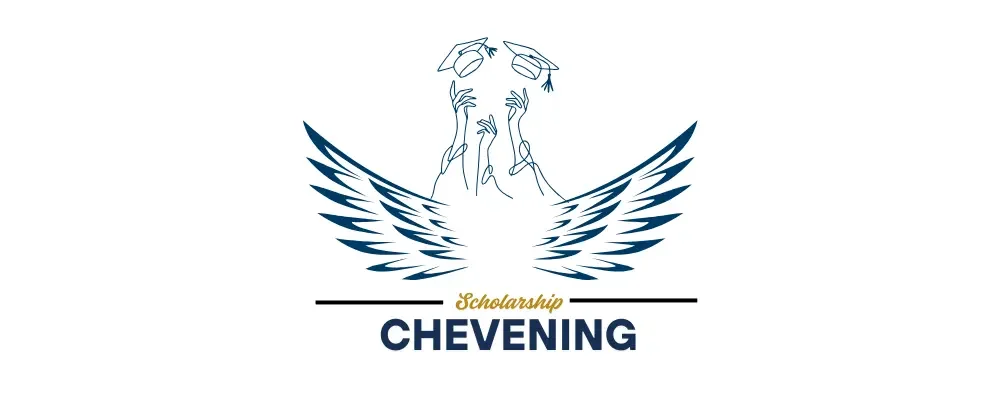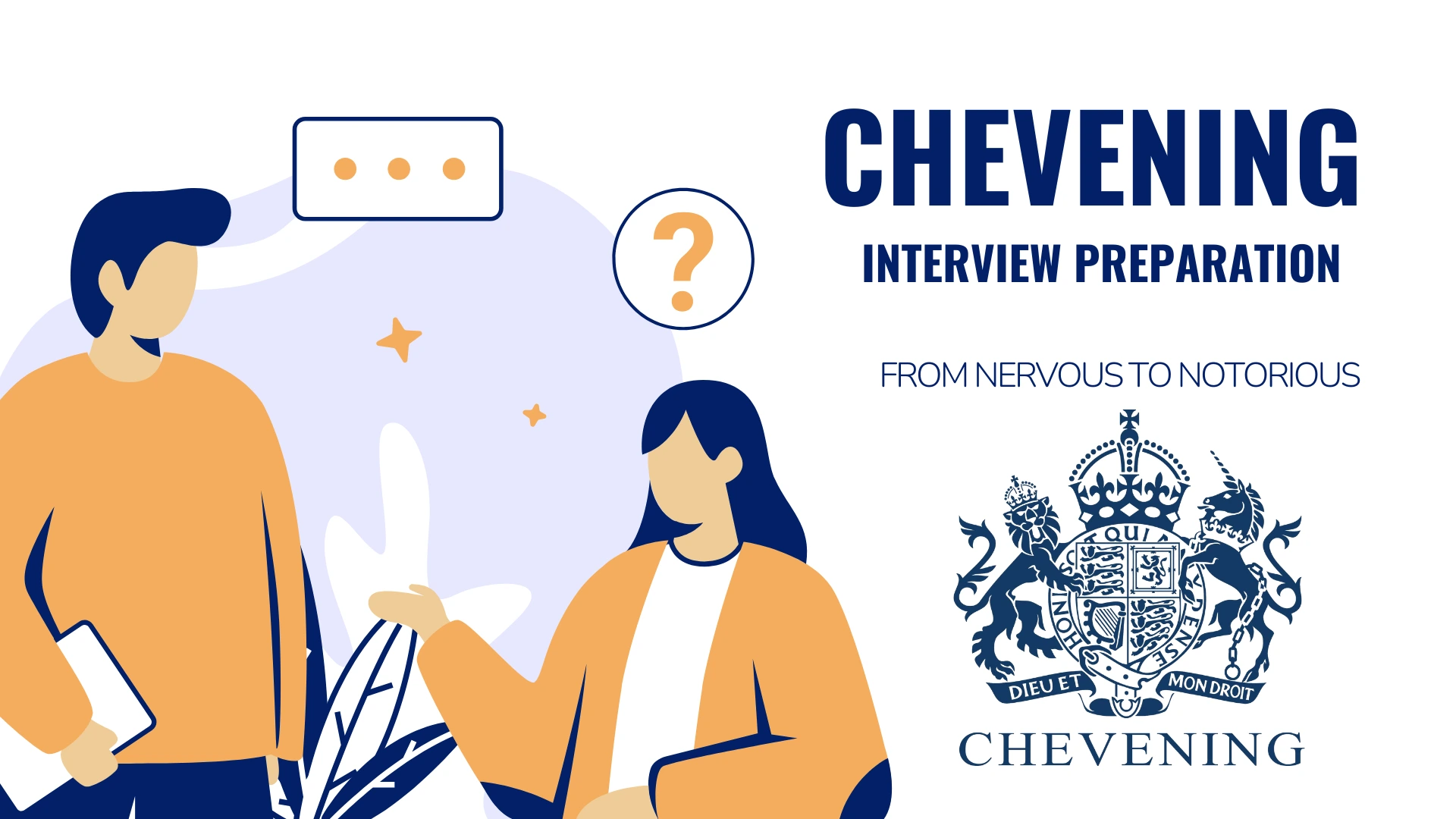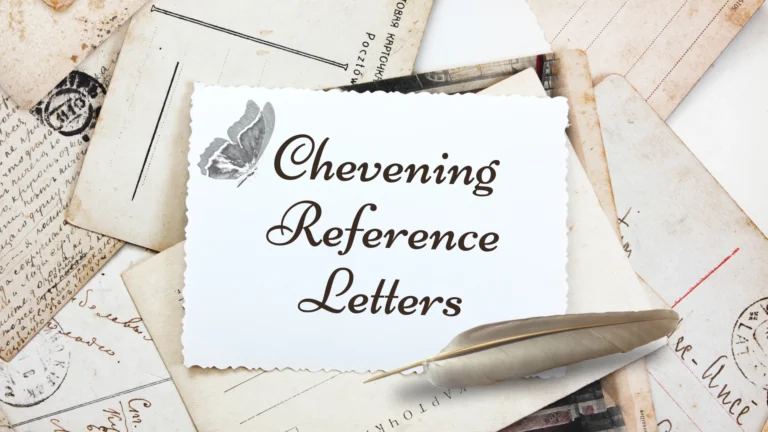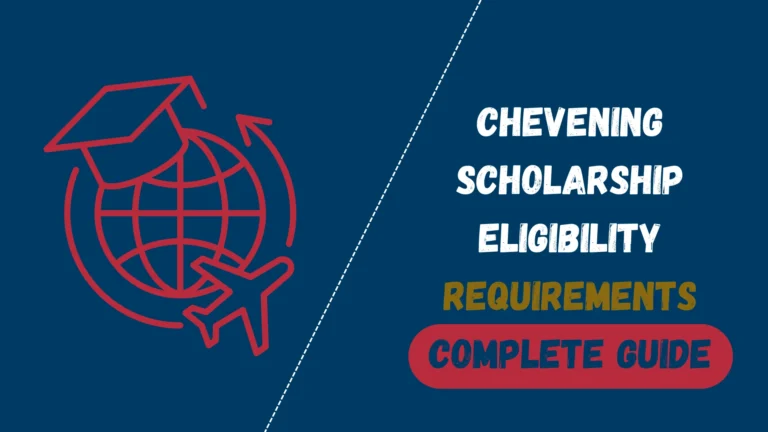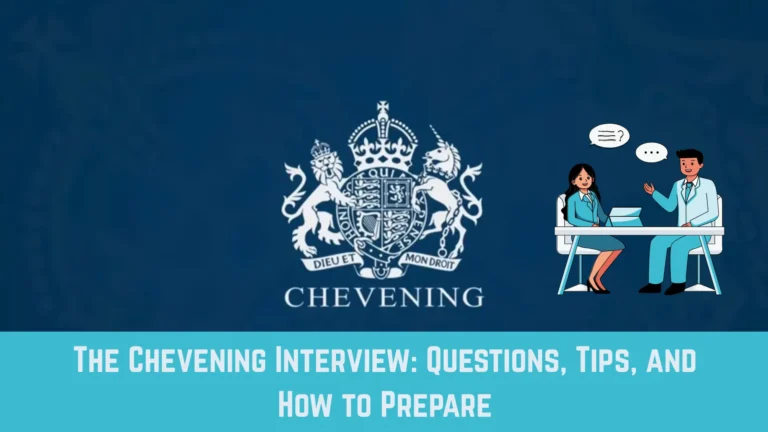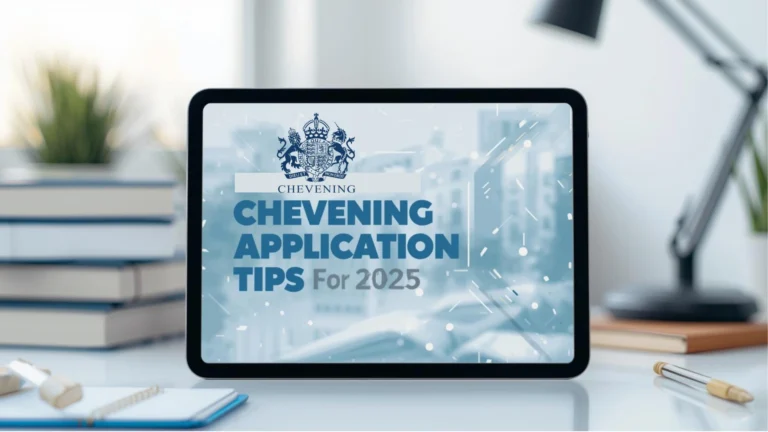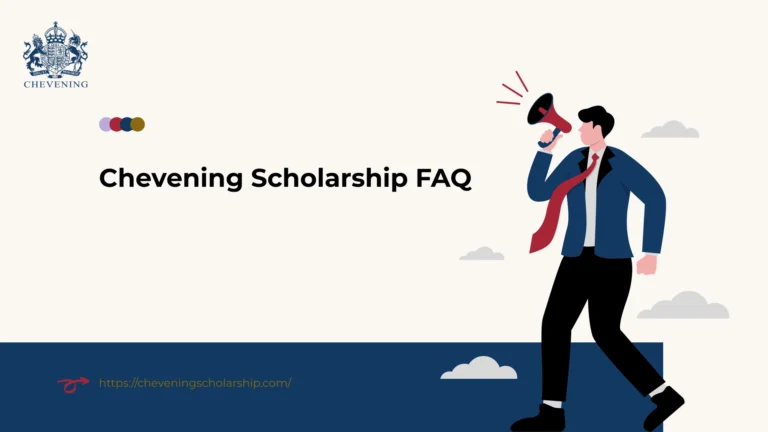Your Ultimate Guide to Chevening Interview Preparation: From Nervous to Notorious
The Stakes Are High, But So Are You
Picture this: You’ve made it through the grueling Chevening application process. Your essays shined. Your references glowed. And now? Now you’re standing at the threshold of something that could genuinely change your life—the Chevening scholarship interview.
I won’t sugarcoat it. This interview is intense. It’s the final boss battle in your quest for a fully-funded UK education. But here’s the thing—you didn’t get this far by accident. The interview panel already believes in your potential. Your job now? Show them they’re absolutely right.
Let me walk you through everything you need to know about Chevening interview preparation. No fluff, no generic advice you could find on any scholarship website. Just the real, practical, sometimes uncomfortable truths about what actually works.

Understanding What You’re Really Up Against
Before we dive into the how-to-prepare for Chevening interview specifics, let’s talk about what makes this different from every other interview you’ve faced.
The Chevening interview panel isn’t looking for robots who’ve memorized perfect answers. They’re hunting for future leaders who can think on their feet, articulate complex ideas simply, and demonstrate genuine passion for creating change. They want to see the person behind the application—your quirks, your fire, your authentic self.
Think of it less like a job interview and more like a sophisticated conversation where you’re proving you deserve a seat at the table. Because that’s exactly what it is.
The Psychology Behind the Panel
Here’s something most Chevening interview preparation guides won’t tell you: the panel members are human beings who’ve sat through dozens of interviews. They can spot rehearsed answers from a mile away. They know when you’re being authentic and when you’re performing.
What genuinely impresses them? Candidates who can connect their personal stories to broader global issues. Who demonstrate self-awareness about their weaknesses. Who show they’ve actually thought deeply about their future impact, not just their future job title.
The Comprehensive Chevening Interview Preparation Timeline
Let’s get tactical. You can’t cram for this interview the night before—trust me, I’ve seen people try, and it never ends well. Here’s your strategic timeline for Chevening scholarship interview preparation.
6-8 Weeks Before: Foundation Building
This is when you lay the groundwork. Start by:
Revisiting Your Application
Read your essays like they’re someone else’s work. What story did you tell? What promises did you make? The panel will absolutely reference your application, and you need to know it inside out. Highlight key themes, specific examples you used, and claims you made about your future plans.
Deep Dive Into Current Affairs
The panel expects you to be informed about what’s happening in the world, especially in your field and home country. Set up Google Alerts for your industry keywords. Read The Economist, Foreign Policy, and major UK newspapers daily. Yes, daily. This isn’t optional.
Understanding UK-Your Country Relations
This one trips up so many candidates. You need to articulate why the UK specifically makes sense for your goals. Research current diplomatic relations, trade partnerships, academic collaborations, and cultural exchanges between the UK and your home country.

4-5 Weeks Before: Content Development
Now you’re building your arsenal of stories and examples.
The Leadership Question Deep Work
Prepare at least five detailed leadership examples from your life. And I mean detailed—the situation, your specific actions, the challenges you faced, how you overcame them, and the measurable impact. Use the STAR method (Situation, Task, Action, Result), but make it conversational, not mechanical.
For each example, ask yourself: What does this story reveal about my leadership style? What would I do differently now? How does this connect to my future goals?
Your “Why Chevening” Narrative
This needs to be compelling and specific. “I want to study in the UK” isn’t enough. Why this particular program? Why these specific universities? How do they connect to gaps in your home country’s capabilities? What unique perspective will you bring to UK classrooms?
Crafting Your Impact Statement
The panel wants to know you’ll return home and create real change. Vague promises about “helping my community” won’t cut it. You need concrete plans with realistic timelines and measurable goals.
2-3 Weeks Before: Mock Interview Mastery
This is where Chevening interview mock preparation becomes crucial.
Find someone who can give you brutally honest feedback. Not your supportive best friend who thinks everything you say is brilliant. You need someone who’ll call out when you’re rambling, when you’re using too much jargon, or when your answers lack substance.
Record yourself. Yes, watching yourself on video is painful. Do it anyway. You’ll catch verbal tics, weird facial expressions, and moments where you lose clarity that you’d never notice otherwise.
Join online Chevening communities. Connect with previous scholars and current applicants. Share mock interview sessions. The insights you’ll gain from seeing how others approach questions are invaluable.

1 Week Before: Fine-Tuning
This is not the time for major changes. You’re polishing, not rebuilding.
The Dress Rehearsal
Conduct a full mock interview in the clothes you’ll wear, at the time of day your interview is scheduled. Get your body and mind used to performing under those specific conditions.
Logistics Lockdown
Whether your interview is in-person or virtual, eliminate potential disasters. Test your technology multiple times. Plan your route with buffer time. Prepare your documents. Think through every possible thing that could go wrong and have a backup plan.
Mental Preparation
This isn’t just about facts anymore—it’s about presence. Practice mindfulness or meditation. Exercise. Sleep properly. Your brain needs to be sharp, and anxiety is the enemy of clarity.
The Questions That Actually Matter (And How to Answer Them)
Let’s tackle the Chevening interview questions and preparation that keeps candidates up at night.
“Tell Us About Yourself”
This isn’t an invitation to recite your CV. It’s your chance to set the narrative frame for the entire interview.
What Works:
“I’m an environmental engineer from Lagos who became obsessed with water scarcity after my neighborhood went three weeks without clean water when I was sixteen. That experience drove me to develop a low-cost filtration system that now serves 5,000 people. But I realized technology alone isn’t enough—we need policy change, which is why I’m here.”
What Doesn’t:
“I graduated from X University in 2020, then worked at Y Company for three years, and now I want to study in the UK.”
See the difference? One tells a story with stakes, passion, and clear motivation. The other is just facts.
“Why Do You Want This Scholarship?”
Wrong answer: “Chevening is prestigious and will help my career.”
Right answer: Connect Chevening’s specific values—leadership, networking, academic excellence—to your concrete goals and explain how you’ll amplify these values in your home country.
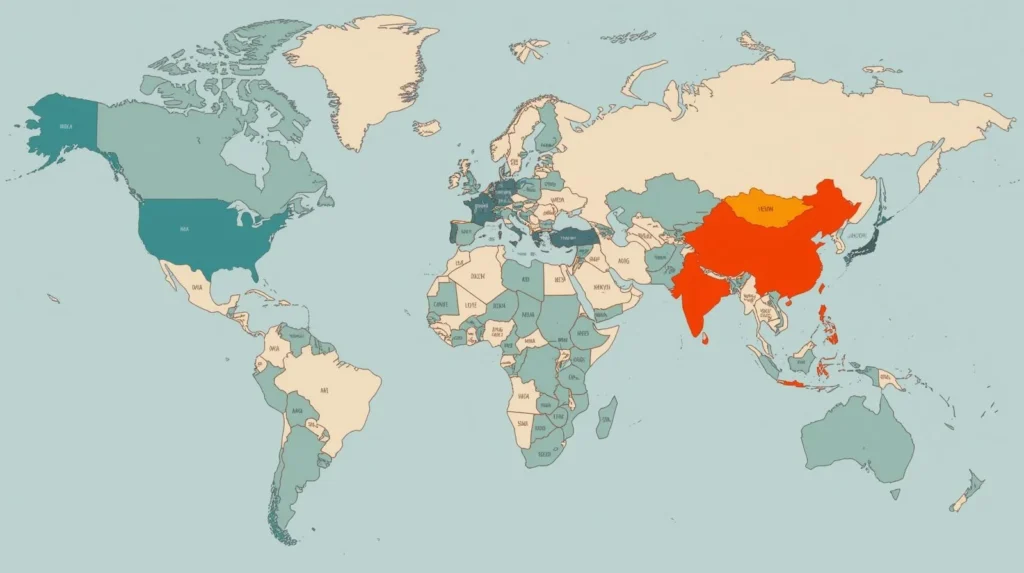
“Describe a Time You Failed”
This question separates the authentic candidates from the performers. The panel isn’t looking for a humblebrag disguised as weakness. They want genuine self-awareness.
The Formula:
- Real failure with actual consequences
- What you learned specifically
- How you’ve applied that lesson since
- Why that failure made you a better leader
I once interviewed a candidate who talked about launching a community project that completely flopped because she didn’t consult the actual community first. She owned it, explained how it taught her about participatory development, and showed how she’d transformed her entire approach to community work. Powerful stuff.
“What Will You Do After Your Scholarship?”
Specificity is everything here. Don’t say “I’ll work in policy reform.” Say “I’ll join the Ministry of Education as a policy advisor, focusing on integrating digital literacy into the national curriculum. Within three years, I aim to pilot my UK learning in five rural districts, measuring impact through student technology adoption rates.”
See how that answer includes:
- Specific organization
- Specific role
- Specific timeline
- Specific measurable outcomes
Leadership Questions: The Heart of the Interview
How to prepare for leadership questions in Chevening interview? By understanding that they’re not just asking if you’ve led—they’re asking what kind of leader you are.
Prepare examples that show:
- Inclusive leadership: How do you bring diverse voices into decision-making?
- Crisis leadership: How do you perform under pressure?
- Visionary leadership: Can you inspire others toward a long-term goal?
- Servant leadership: How do you prioritize others’ growth?
Mix your examples across different contexts—professional, community, academic, personal.
The Chevening Interview Day Preparation: Getting Tactical
The day has arrived. Here’s your Chevening interview preparation checklist for the final 24 hours.
The Night Before
Don’t:
- Stay up late cramming
- Eat anything that might upset your stomach
- Consume excessive caffeine or alcohol
- Obsessively rehearse answers (you’ll sound robotic)
Do:
- Review your key stories and themes lightly
- Lay out your complete outfit
- Set multiple alarms
- Do something that relaxes you genuinely
- Get at least 7 hours of sleep
Morning Of
Eat a solid breakfast with protein. Your brain needs fuel. Arrive 30 minutes early (or log in 20 minutes early for virtual interviews) but don’t enter the building or join the call until 10 minutes before. Use that buffer time for last-minute bathroom breaks and calming breaths.

The Chevening Interview Attire Question
Here’s the honest truth about Chevening scholarship interview attire preparation: dress like you’re meeting the CEO of a company you respect. Not a funeral. Not a nightclub. Professional, polished, comfortable.
For men: A well-fitted suit in navy or charcoal. Clean, polished shoes. Minimal accessories. Make sure your clothes are ironed and fit properly.
For women: A professional suit, dress, or smart separates. Closed-toe shoes. Minimal jewelry. Whatever makes you feel confident and powerful.
Cultural considerations matter. If your professional attire includes cultural elements, wear them with pride. Authenticity always trumps generic corporate conformity.
Body Language: The Silent Game-Changer
Chevening interview body language preparation might sound trivial until you realize that up to 55% of communication is non-verbal.
Power Moves:
- Maintain steady eye contact (but don’t stare unblinkingly—that’s creepy)
- Sit upright with shoulders back (confidence, not arrogance)
- Use hand gestures naturally when explaining complex ideas
- Smile genuinely when appropriate
- Lean slightly forward to show engagement
What to Avoid:
- Fidgeting with pens, jewelry, or hair
- Crossing arms (defensive posture)
- Looking down constantly
- Touching your face excessively
- Rocking or swaying
Practice your body language during mock interviews. It should feel natural by interview day.
The Mistakes That Kill Candidacies
Let’s talk about Chevening interview preparation mistakes that derail otherwise strong candidates.
Mistake #1: Cooking Up Stories
The temptation to embellish is real. You want to impress them. But here’s the thing about Chevening interview cooking up stories—experienced panelists can smell fabrication instantly. They’ll ask follow-up questions that expose inconsistencies. And once your credibility is shot, you can’t recover.
Instead, take your real experiences and dig deeper into them. Often, candidates underestimate how impressive their actual achievements are when properly contextualized.
Mistake #2: Memorizing Instead of Understanding
If you’ve memorized answers word-for-word, you’ll freeze when the panel asks a slightly different version of your prepared question. Understand the core message you want to convey for each topic, then let yourself articulate it naturally in the moment.
Mistake #3: Not Asking Questions
At the end, they’ll ask if you have questions. “No, everything’s clear” is a missed opportunity. Prepare 2-3 thoughtful questions that show you’ve researched Chevening deeply and are thinking about how to maximize the experience.
Good questions:
- “How does Chevening support scholars in building cross-cultural collaborations during the program?”
- “What qualities distinguish scholars who create the most significant impact after returning home?”
- “How can I stay connected with the Chevening network after my scholarship ends?”

Mistake #4: Neglecting the Networking Piece
Chevening isn’t just about academics—it’s about building a global network. If you don’t demonstrate understanding and enthusiasm for this aspect, you’re missing a crucial component.
Talk about specific ways you’ll engage with the Chevening community. Mention past scholars whose work inspires you. Show that you see yourself as part of a movement, not just a scholarship recipient.
Techniques and Hacks for Maximum Impact
Let’s get into some Chevening interview preparation techniques and hacks that give you an edge.
The Three-Story Method
For every major theme (leadership, networking, academic goals, impact), prepare three stories at different depths:
- The headline: 30-second summary
- The article: 2-minute detailed version
- The deep dive: 5-minute comprehensive story with context and nuance
This way, you can adjust based on the panel’s engagement and time constraints.
The Bridge Technique
When asked a question you didn’t prepare for, acknowledge it honestly, then bridge to related territory where you’re confident.
“That’s an interesting angle I hadn’t considered deeply. What I can speak to is [related topic], which connects because…”
This shows intellectual honesty while keeping you in strong territory.
The Power Pause
When asked a complex question, don’t rush to fill silence. Take 3-5 seconds to gather your thoughts. Say something like, “That’s a great question, let me think through the best way to address it.” This demonstrates thoughtfulness and confidence.
Stress Management Hacks
Before the interview:
- Box breathing: Inhale for 4 counts, hold for 4, exhale for 4, hold for 4. Repeat.
- Power posing: Stand in a confident pose for 2 minutes before entering.
- Positive visualization: Imagine yourself giving brilliant answers and the panel nodding appreciatively.
During the interview:
- If you feel anxiety rising, ground yourself by pressing your feet firmly into the floor.
- Keep a glass of water handy for strategic pauses and dry mouth.
- Remember: The panel wants you to succeed. They’re not adversaries.
Resources That Actually Help
Here’s your curated list of Chevening interview preparation material and resources worth your time.
Must-Read Blogs and Articles
Browse the official Chevening website’s scholar testimonials. Real people, real experiences, real insights into what the panel valued.
LinkedIn has numerous articles from past scholars detailing their interview experiences. Search “Chevening interview experience” and filter by recent posts.
Video Resources
YouTube contains Chevening interview preparation video content from successful scholars. Look for channels like “Chevening Scholars” and interviews with past recipients discussing their journey.
Podcasts Worth Your Commute
While there aren’t Chevening-specific podcasts, leadership and interview preparation podcasts can sharpen your thinking. Search for:
- TED Talks on leadership
- BBC podcasts on UK current affairs
- Industry-specific podcasts relevant to your field
Apps and Tools
For mock interviews:
- Big Interview (structured practice questions)
- Zoom or Google Meet (for recording practice sessions)
For stress management:
- Headspace or Calm (meditation and mindfulness)
- Forest (staying focused during study sessions)
For current affairs:
- BBC News app
- The Guardian app
- Feedly (for curating news from multiple sources)
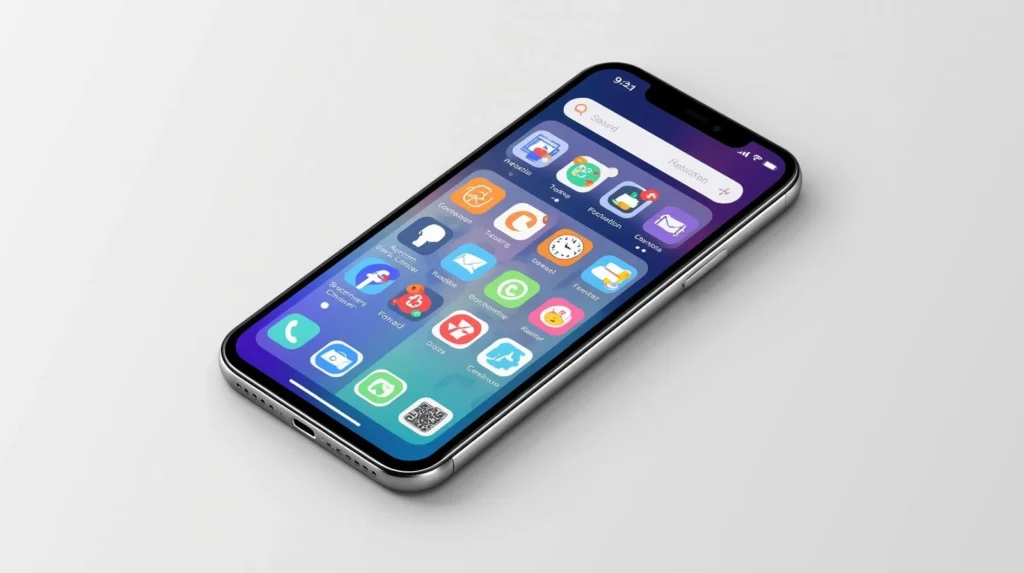
Workshops and Courses
Many universities and educational consultancies offer Chevening interview preparation workshops, often online. While some charge fees, others are free through alumni networks or Chevening partner institutions.
Check if your university has a Chevening alumni chapter that offers mentorship or mock interview sessions.
The Networking and Support System Advantage
One of the smartest things you can do? Join Chevening interview preparation support groups.
Where to Find Them:
- Facebook groups for Chevening applicants (search your country + Chevening)
- WhatsApp groups formed by applicants from previous cycles
- LinkedIn Chevening communities
- Reddit threads (r/scholarships and country-specific education subreddits)
The Power of Mentorship
Chevening interview preparation with mentors can transform your approach. A mentor who’s been through the process provides:
- Insider perspective on what the panel really values
- Brutally honest feedback on your weak points
- Accountability to keep you on track
- Emotional support during stressful moments
How to find a mentor? Reach out to Chevening alumni in your field through LinkedIn. Many are genuinely happy to help. Be respectful of their time—come prepared with specific questions.
Group Study Benefits
Chevening interview preparation group study creates collaborative learning. You’ll:
- Discover question angles you hadn’t considered
- Learn from others’ strong answers
- Practice articulating your thoughts to peers
- Build friendships with people who understand your journey
Special Considerations: If You’re an Introvert
Chevening interview preparation for introverts requires acknowledging that interviews drain your energy while playing to your strengths.
Your Advantages:
- Deep thinking and reflection
- Listening carefully before responding
- Thoughtful, nuanced answers
- Authentic rather than performative
Your Challenges:
- Small talk and rapport-building
- Thinking out loud under pressure
- Showing enthusiasm visibly
- Not overthinking to the point of paralysis
Strategies That Work:
- Schedule mock interviews in shorter bursts to avoid burnout
- Prepare strong opening statements so you start confidently
- Practice expressing emotion and passion (it doesn’t come naturally but can be learned)
- Reframe the interview as a deep conversation about topics you love
- Build in recovery time after practice sessions
Remember: Some of the most impressive Chevening scholars are introverts. You don’t need to become someone else—just become the best version of yourself.

Practical Examples That Bring It Together
Let’s walk through Chevening interview preparation examples from successful candidates.
Example 1: The Policy Wonk
Sarah, from Kenya, wanted to study public policy. Her winning approach:
- Connected UK constitutional history to current governance challenges in Kenya
- Demonstrated deep knowledge of specific UK think tanks she wanted to engage with
- Showed how Kenya’s devolution process could learn from UK local governance models
- Had concrete research questions she wanted to explore at LSE
- Articulated a clear path to a policy advisory role in Kenya’s Parliament
What made her stand out: Specificity. She didn’t talk vaguely about “policy”—she knew exactly what she wanted to study, why, and how she’d apply it.
Example 2: The Social Entrepreneur
James, from Nigeria, ran a youth employment NGO. His strategy:
- Brought data showing his NGO’s impact (500 youths employed over 3 years)
- Honestly discussed his failures (a digital skills program that flopped)
- Explained how UK’s social enterprise models could scale his work
- Showed he’d researched UK’s apprenticeship system deeply
- Articulated how he’d return and influence national youth policy
What impressed them: Humility combined with ambition. He didn’t pretend to have all the answers but showed he was asking the right questions.
Example 3: The Techie with Heart
Amira, from Bangladesh, worked in fintech but wanted to study development economics. Her approach:
- Bridged her technical background with social impact goals
- Discussed how financial inclusion could reduce poverty in rural Bangladesh
- Referenced specific UK fintech regulations she wanted to understand
- Showed vulnerability by discussing moments where her tech solutions missed user needs
- Demonstrated networking enthusiasm by mentioning Chevening events she’d organize
What sealed the deal: She showed technology wasn’t just her job—it was her tool for creating systematic change.
Your Questions, Answered
How long should I prepare for the Chevening interview?
Minimum 6-8 weeks for comprehensive preparation. You need time to develop substantive answers, conduct multiple mock interviews, and refine your delivery. Can you do it in less time? Sure. Will it be as effective? Probably not.
What if I don’t know the answer to a question?
Be honest. Say something like, “I don’t have deep knowledge of that specific area, but what I do know is…” or “That’s something I’d actually love to explore more during my scholarship.” Never try to BS your way through. Panelists respect intellectual honesty.
Should I prepare answers in writing?
Yes, but don’t memorize them verbatim. Write out your key stories and messages to clarify your thinking, then practice delivering them conversationally. The writing process helps organize your thoughts; the speaking practice makes you natural.
How formal should I be?
Professional but personable. You’re speaking with senior academics and professionals who value substance and authenticity. Use proper English, avoid slang, but don’t be stiff or robotic. Imagine you’re having coffee with a respected professor—that’s the tone.
What if my interview is virtual?
Everything above applies, plus:
- Test your technology obsessively
- Ensure good lighting (face the window or use a ring light)
- Position your camera at eye level
- Have a clean, professional background
- Look at the camera when speaking, not the screen
- Eliminate all potential background noise
- Have backup internet (mobile hotspot ready)

Can I bring notes?
For virtual interviews, you might have notes out of camera view, but don’t rely on them. Any time spent reading is time you’re not making eye contact or building rapport. For in-person interviews, definitely no notes.
How do I handle panel dynamics?
Make eye contact with whoever asked the question but periodically include others. Notice who seems most engaged and who might be skeptical—both are giving you information. If one panelist challenges you sharply, stay calm and see it as an opportunity to show grace under pressure.
The Mental Game: Staying Grounded Under Pressure
Here’s what nobody tells you about Chevening interview stress management: The anxiety never fully disappears. You just get better at functioning despite it.
Reframe Your Relationship with Anxiety:
Those butterflies? That’s your body preparing you to perform. Your increased heart rate means more oxygen to your brain. Your heightened alertness means you’ll catch subtle cues. Don’t fight the anxiety—channel it.
The 24-Hour Rule:
No matter how the interview goes, give yourself 24 hours before evaluating your performance. Immediately after, you’ll either think you nailed it or bombed it. Both assessments are probably wrong. You need distance for accurate perspective.
Have a Post-Interview Plan:
Know what you’re doing immediately after the interview. Meet a friend, go for a run, watch a movie—whatever helps you decompress. Don’t sit alone obsessing over every answer you gave.
Remember: You Belong Here
Imposter syndrome hits hard during Chevening interview preparation. You’ll compare yourself to other candidates and convince yourself you’re not good enough. Let me be clear: If you got to the interview stage, you belong there. The panel sees potential in you. Now trust yourself enough to show them they’re right.
Beyond the Interview: What Happens Next
You’ve done the interview. Now comes the waiting. Here’s the reality: Decisions take time. Months, sometimes. Use that time productively.
Keep Building Your Profile:
Don’t freeze your life waiting for results. Continue your work, pursue opportunities, develop your skills. If you get the scholarship, you’ll be even stronger. If you don’t, you’ll have moved forward anyway.
Stay Connected:
The relationships you built during preparation—with mentors, other applicants, support groups—those are valuable regardless of outcomes. Nurture them.
Prepare for Either Outcome:
Success plan: If you get it, what’s your first step? Start researching housing, connecting with current scholars, planning your year.
Alternate plan: If you don’t get it this time, what’s your next move? Other scholarships? Self-funding part of your education? Reapplying next year? Having a plan reduces the sting of potential rejection.
The Real Talk: What If You Don’t Get It?
I’d be doing you a disservice if I pretended everyone who prepares well gets the scholarship. They don’t. The competition is fierce. Brilliant candidates get rejected every year.
If this happens to you:
Feel the disappointment. Don’t minimize it. This mattered to you, and it’s okay to be upset.
But don’t catastrophize. Not getting Chevening doesn’t mean you’re not worthy of success. It means this particular panel, in this particular year, chose others. That’s it.
Extract the lessons. Request feedback if possible. What could you strengthen for next time? How can you use this experience to improve?
Remember your agency. Chevening would have accelerated your journey, but it’s not the only path. Leaders with impact find ways to create change with or without prestigious scholarships.
Some of the most successful people I know applied for Chevening twice, three times before succeeding. Others never got it but created remarkable impact through different routes. Your worth isn’t determined by any single outcome.
Final Wisdom: The Night Before Mindset
Here we are. You’ve prepared for weeks. You’ve done the work. Tomorrow’s the day.
Stop trying to cram new information into your brain. You know what you know. Now it’s about showing up as your best self.
Remember These Truths:
The panel isn’t trying to trick you. They want to like you. They want to see brilliance in you. They’re on your side.
Your nervousness is normal. Every candidate they interview is nervous. It’s not a disadvantage unless you let it paralyze you.
There’s no perfect performance. You’ll stumble over words, maybe forget a statistic, possibly misread a question. That’s human. What matters is your overall message, your passion, your authenticity.
You are enough. With all your imperfections, your unique experiences, your particular blend of strengths and weaknesses—you are enough. The panel isn’t looking for perfection. They’re looking for potential. And you have it.
UK Government Scholarships: Your Complete Guide to Studying in Britain for Free
Your Mantra for Tomorrow:
“I earned this opportunity. I prepared thoroughly. I have valuable perspectives to share. I will be present, honest, and myself. Whatever happens, I gave my best, and that is enough.”
Go Make It Happen
This is it. You’ve got the knowledge, the strategies, the techniques. You understand what the panel wants to see. You’ve prepared your stories, practiced your delivery, planned your logistics.
Now comes the part where you walk into that room (or log into that video call) and show them exactly why you deserve to be the next Chevening Scholar.
Remember: They invited you to interview because they already believe in your potential. Your job is simply to confirm what they suspect—that you’re going to be extraordinary.
So take a deep breath. Trust your preparation. Believe in yourself.
And go absolutely nail this thing.
Because the world needs leaders who are brave enough to chase opportunities that scare them, smart enough to prepare thoroughly, and authentic enough to remain themselves under pressure.
You’re that person.
Now prove it.

One Last Thing
After your interview—whether it goes brilliantly or just okay—take a moment to appreciate yourself. You pursued something difficult. You put yourself out there. You dared to dream bigger than your current circumstances.
That courage? That’s what leadership actually looks like. Not perfect performances or impressive titles, but the willingness to try for something meaningful even when success isn’t guaranteed.
You’ve already won by getting this far. The scholarship would be amazing. But you? You’re already remarkable.
Now go show them.
Ready to start your preparation? Bookmark this guide, share it with fellow applicants, and remember: Your Chevening journey starts now. Make it count.
